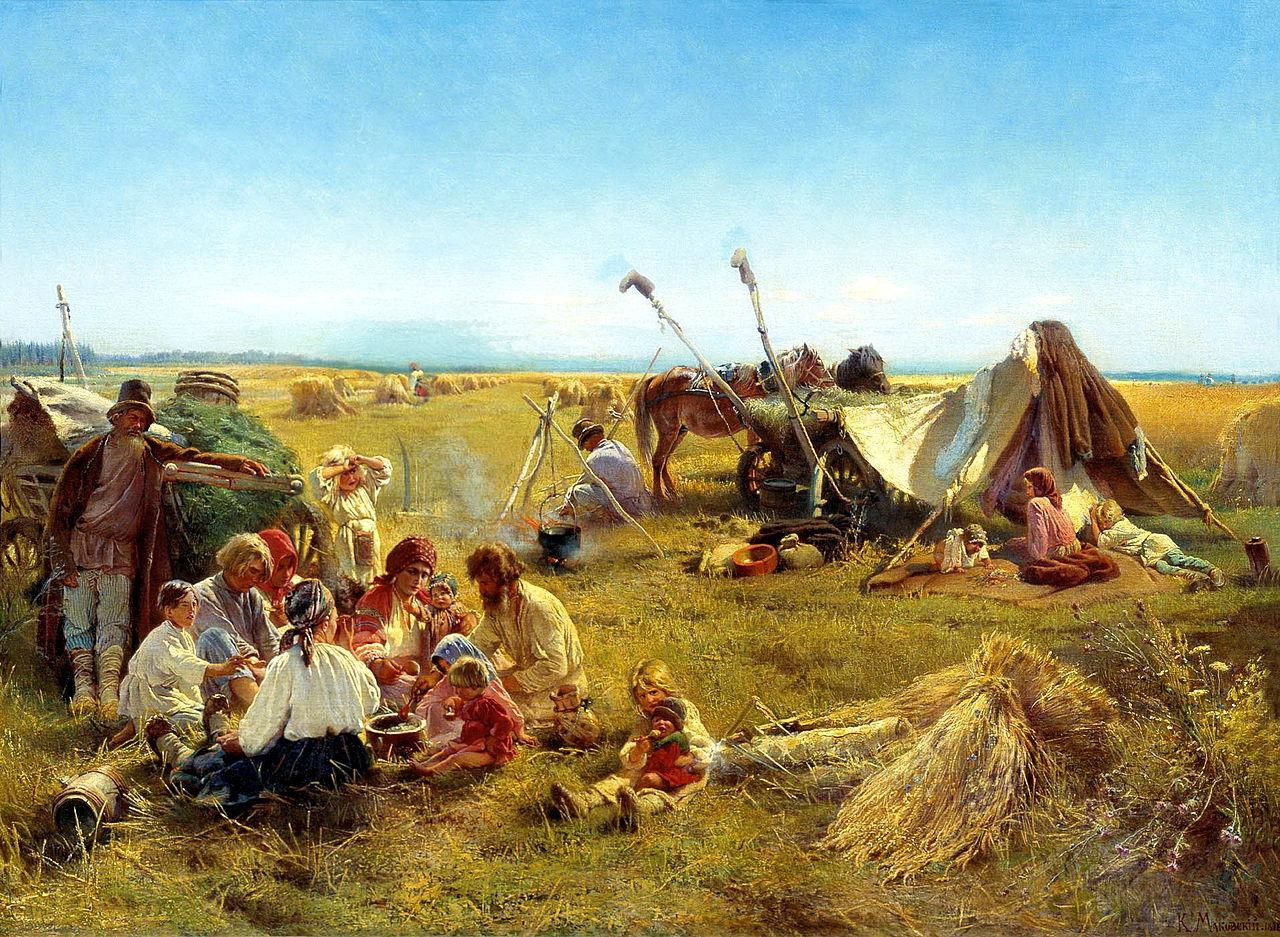Note: This article has been excerpted from a larger work in the public domain and shared here due to its historical value. It may contain outdated ideas and language that do not reflect TOTA’s opinions and beliefs.
The Russian Peasantry by Stepniak, 1888.
Kinship has no influence whatever in the distribution and proportioning of shares at any division of property. It is determined by the quantity of work each has given to the family. The brother who has lived and worked with the family for the longer time will receive most, no matter whether he be the elder or the younger. He will be excluded from the inheritance altogether if he has been living somewhere else and has not contributed in some way to the common expenses. The same principle is observed in settling the differences between the other grades of kinsfolk. The cases of sons-in-law, step-sons, and adopted children are very characteristic. If they have remained a sufficient time (ten or more years) with the family, they receive, though strangers, all the rights of legitimate children, whilst the legitimate son is excluded if he have not taken part in the common work.
This is in flagrant contradiction to the civil code of Russia, as well as of other European countries. The same contradiction is observable in the question of women's rights. The Russian law entitles women--legitimate wives and daughters—to one-fourteenth only of the family inheritance. The peasants' customary law requires no such limitation. The women are in all respects dealt with on an equal footing with the men. They share in the property in proportion to their share in the work. Sisters, as a rule, do not inherit from brothers, because in marrying they go to another family, and take with them as dowry the reward of their domestic work. But a spinster sister, or a widow who returns to live with her brothers, will always receive or obtain from the tribunal her share.
The right to inheritance being founded on work alone, no distinction is made by the peasants' customary law between legitimate wives and concubines.
It is interesting to note that the husband, too, inherits the wife's property (if she has brought him any) only when they have lived together sufficiently long - above ten years; otherwise the deceased wife's property is returned to her parents.
The principle ruling the order of inheritance is evidently the basis for the verdicts in all sorts of litigation. Labour is always recognized as giving an indefeasible right to property. According to common jurisprudence, if one man has sown a field belonging to another—especially if he has done it knowingly -- the court of justice will unhesitatingly deny the offender any right to the eventual product. Our peasants are as strict in their observance of boundaries, when once traced, as are any other agricultural folk.
But labour has its imprescriptible rights. The customary law prescribes a remuneration for the work executed in both of the above mentioned cases--in the case of unintentional as well as in the case of premeditated violation of property. Only, in the first instance, the offender, who retains all the product, is simply compelled to pay to the owner the rent of the piece of land he has sown, according to current prices, with some trifling additional present; whilst in the case of violation knowingly done, the product is left to the owner of the land, who is bound nevertheless, to return to the offender the seed, and to pay him a labourer's wages for the work he has done.
If a peasant has cut wood in a forest belonging to another peasant, the tribunal settles the matter in a similar way. In all these cases the common law would have been wholly against the offender, the abstract right of property reigning supreme.
Stepniak, The Russian Peasantry: Their Agrarian Condition, Social Life, and Religion (New York: Harper & Brothers, 1888), 79-81.
About TOTA
TOTA.world provides cultural information and sharing across the world to help you explore your Family’s Cultural History and create deep connections with the lives and cultures of your ancestors.


